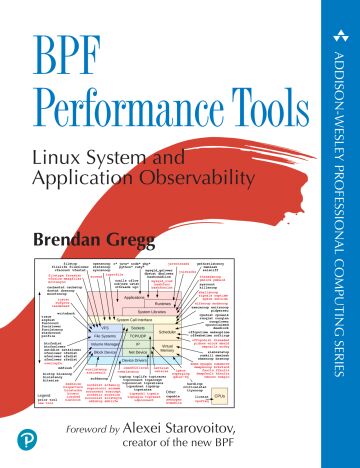For my first trip to Paris I gave the closing keynote at EuroBSDcon 2017 on performance methodologies, using FreeBSD 11.1 as an analysis target. In the past I've shared similar methodologies applied to other operating systems, and finished porting them to BSD for this talk. It was a few days of work, which is really not bad. That's a virtue of these methodologies: once you learn them, you can apply them to anything throughout your career, and it doesn't take too much time to re-apply them.
The video is on youtube:
Here are the slides or as a PDF:
FreeBSD has an excellent range of analysis tools, and this was an opportunity to show them off. Among the new content I developed for the talk was a FreeBSD performance checklist:
uptime→ load averagesdmesg -a | tail→ kernel errorsvmstat 1→ overall stats by timevmstat -P→ CPU balanceps -auxw→ process usageiostat -xz 1→ disk I/Osystat -ifstat→ network I/Osystat -netstat→ TCP statstop→ process overviewsystat -vmstat→ system overview
I also developed a new tool to support my thread state analysis methodology on FreeBSD, tstates.d:
# ./tstates.d Tracing scheduler events... Ctrl-C to end. ^C Time (ms) per state (read script for info): COMM PID CPU RUNQ SLP USL SUS SWP LCK IWT YLD irq15: ata1 12 0 0 0 0 0 0 0 15024 0 [...] sleep 877 0 0 505 0 0 0 0 0 0 bufdaemon 19 0 11 0 15057 0 0 0 0 0 sleep 879 0 0 2614 0 0 0 0 0 0 devd 523 0 0 15024 0 0 0 0 0 0 syncer 21 1 9 0 15055 0 0 0 0 0 fsck_ufs 878 1 0 0 10 0 0 0 0 0 fsck 836 1 0 12 0 0 0 0 0 0 dd 883 2 0 0 0 0 0 0 0 0 bufspacedaemon 20 3 5 0 15019 0 0 0 0 0 dtrace 873 3 23 15980 0 0 0 0 0 0 sh 881 4 0 3 1 0 0 0 0 0 csh 865 5 7 13882 0 0 0 0 0 0 rand_harvestq 6 8 20 0 15846 0 0 0 0 0 kernel 0 29 15 0 0 0 0 0 0 0 cam 4 45 14 0 0 0 0 0 0 0 sshd 863 52 85 13757 0 0 0 0 0 0 intr 12 79 192 0 0 0 0 0 0 0 cksum 876 1591 177 0 234 0 0 0 0 0 idle 11 14114 1902 0 0 0 0 0 0 0
This tool breaks down thread time into different states by tracing scheduler events (which can have noticeable overhead: measure in a lab environment before use). The states are:
- CPU: on-CPU
- RUNQ: Waiting on a CPU run queue
- SLP: Interruptible sleep
- USL: Uninterruptible sleep (eg, disk I/O)
- SUS: Suspended
- SWP: Swapped
- LCK: Waiting for a lock
- IWT: Waiting for an interrupt
- YLD: Yield
I added USL since the talk to split out disk I/O from the sleep state. The output above includes a sleep 0.5 command, and a cksum.
EuroBSDcon was a great conference, and I had a lot of fun catching up with the BSD folk and meeting new people. If you missed my talk, you can see it online above, and I hope you find it useful.


Click here for Disqus comments (ad supported).